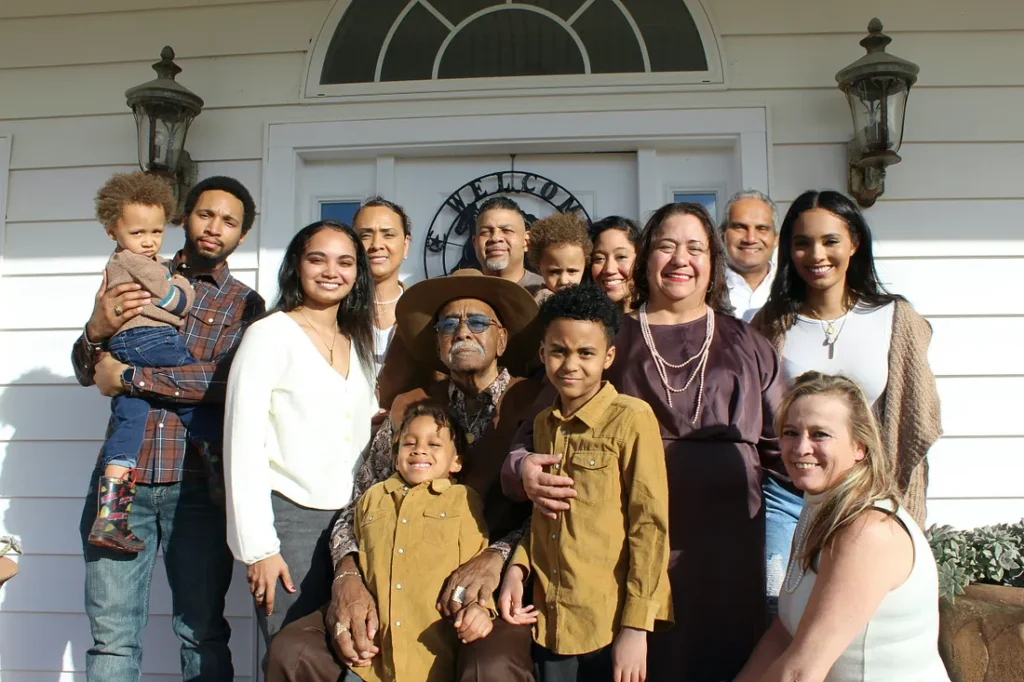Book Appointment Now
When Your Leaving Ruins Your Family’s Reputation

When you’re married or in a committed relationship, both your families will be kind of enmeshed with each other, and your parents may even become best friends. You might have also had an expensive or extravagant wedding to mark the occasion of you and your supposed-till-death-do-you-part partner starting that phase in life. So, you’re probably the talk of the town because it was a beautiful event, and some have been admiring your marriage, or even some of your family members have seen you as role models.
Then, when things come crumbling down or when you start having irreconcilable issues in the marriage, naturally, because your families have been so enmeshed, you would probably sometimes seek their counsel or advice on the best way forward.
In normal relationships, or rather in relationships where there is awareness or a level of growth and development, they will simply listen to you and not force you to stay or reconcile. Some will even support you in your journey of getting that divorce. That is when you’re dealing with a supportive relationship.
But in the case of dealing with an emotionally abusive relationship or a relationship that appears good to others but is horrible on the inside, it’s different. Your partner is likely to be the last one to inform your parents that they’re the reason for the separation; instead, they will paint you as the one who wants to leave the relationship, not them.
They may also be the ones telling your family that they want to reconcile and that they’ve begged for forgiveness. It’s like they will tell your family what your family wants to hear, often following the African-traditional way. Both your family and their family may also gang up and encourage or force you to listen to them.
Family Reputation = Collective Ego
They may spew out a million marriage advices on perseverance and even tell you their own stories of overcoming challenges, or they may tell you that you’re rushing, but their advice is often not genuinely aimed at helping you grow. Instead, it’s often about preserving their own reputation as well. This varies depending on the nature of your culture- in my experience, that’s what happens.
When you leave, your parents’ or your family’s reputation may be ‘tarnished,’ as your family or the collective ego may want to be seen as a unit that sticks together. The opposite of sticking together is often seen as divorce or you returning home after that fancy wedding.
It’s so common for me to hear close relatives tell me, “What will people say?” when I mention to them that divorce is okay if someone is being mistreated. People-pleasing or maintaining a self-image can push your family members to try to fix your relationship on your behalf. It’s not necessarily because they care deeply about you, but because they want to maintain the image that “our daughters or sons mostly stay in their marriages” or “we don’t want other people to see you had disagreements.”
You see, as long as we individually care about what other people say, we will also, as a collective, mostly believe the same things. That’s why reputation or being seen in a good light is a huge trap. I’ve seen it countless times where unaware mothers and fathers would rather see their daughters or sons stick to the marriage than even entertain the idea of leaving, simply because they don’t want their child to be seen as divorced. It’s not really because they care; it’s simply to maintain the facade of being seen as living by the standards set by society.
Reputation is a dangerous game, and it’s the same reason your family may not side with you when you’re in an emotionally abusive relationship. Furthermore, they may not recognize that the relationship is problematic because your partner displays obedience and charm publicly while tormenting you behind the scenes.
That’s why you shouldn’t necessarily seek advice from your family about your marriage, as sometimes they will unconsciously or consciously enable the abuse just to avoid being seen as the ones who ‘ruined’ the relationship. So, they would rather criticize you so that they can be seen in a good light by the in-laws. That’s their default perspective and how they view the situation.
So, sometimes, you just need to seek out those family members or friends who support you and listen to your side of the story without forcing reconciliation. That’s why therapy exists, because you can receive an unbiased opinion about what you’re truly going through.
Note from the Author
If you’re ready and you’d like my help with healing, finding peace in life and breaking free from these toxic patterns, then you can book a FREE BREAKTHROUGH CALL with me HERE. Happy healing 💙💙. Feel free to share and comment! Use this information with caution, it comes from my own thoughts & bias, experiences and research😊.







